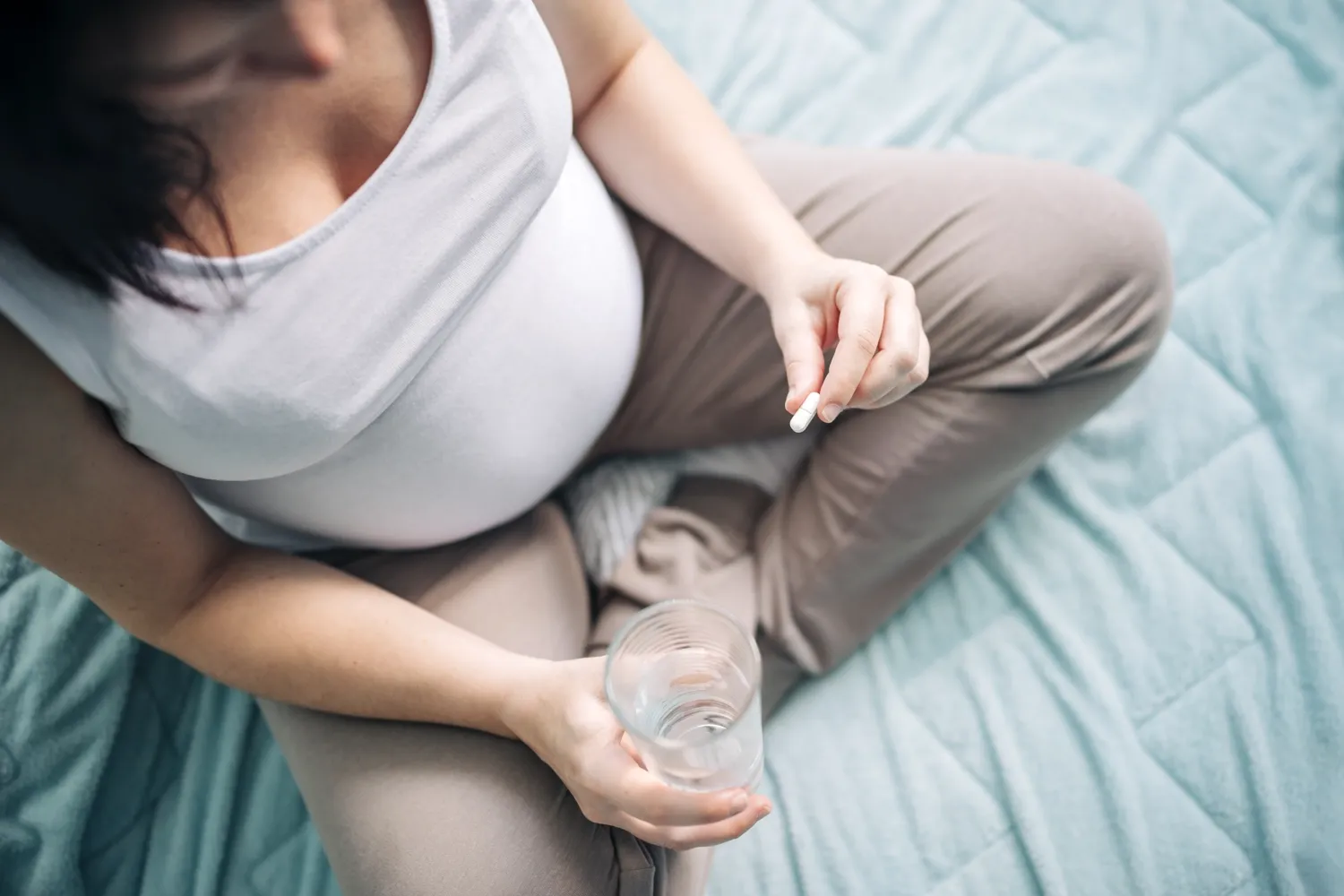Stomach acid medicine tied to higher infection risk in pregnancy

Pregnant women who use proton pump inhibitors, a common medicine for heartburn, run a slightly higher risk of developing infections during pregnancy and after childbirth. This is shown in a new registry study from Karolinska Institutet, published in the journal The Lancet Obstetrics, Gynaecology & Women’s Health.

“It is important to weigh the benefits of the drug against the risks, especially for pregnant women with increased susceptibility to infection,” says first author Hana Shabana, PhD student at the Department of Oncology-Pathology, Karolinska Institutet.
Proton pump inhibitors (PPIs) are often used to relieve acid reflux, which is common during pregnancy, and the use of the drug has increased among pregnant women from 1.5 percent in 2006 to 3.4 percent in 2019.
In the current study, researchers analyzed data from over 1.5 million pregnancies in Sweden between 2006 and 2019. The aim was to investigate whether the use of PPIs before or early in pregnancy affects the risk of infections later in pregnancy and after childbirth.
The results show that 2.8 percent of pregnant women used PPIs. Among these, almost half (49.7 percent) had some form of infection during pregnancy or up to three months after giving birth, compared with 36.8 percent among those who did not use PPIs. After adjusting for factors such as age, BMI, education, and other diseases, an increased risk remained: PPI use was associated with a 26 percent higher risk of infection overall.

“Our results suggest that the use of proton pump inhibitors during pregnancy is associated with an increased risk of both viral and bacterial infections, especially in the gastrointestinal tract,” says Professor Kenny A Rodriguez-Wallberg at the same department, who led the study.
The researchers emphasize that the study is observational and that there are factors, such as lifestyle and diet, that could not be measured and that may influence the results. They also point out that PPIs are often used for more severe symptoms and that these individuals may have other risk factors for infection.
The study is a collaboration between Karolinska Institutet and the University of Antwerp and has been funded by the Swedish Research Council, the Swedish Cancer Society, the Radiumhemmet Research Fund, Region Stockholm, and Karolinska Institutet. Several of the researchers have received research grants or fees from pharmaceutical companies, but these have not played any role in the conduct or reporting of the study.
Publication
”Proton pump inhibitors and the risk of infection during pregnancy and postpartum: a population-based register cohort study in Sweden”, Hana Shabana, Carolyn E Cesta, Jane Yan, Nele Brusselaers, Kenny A Rodriguez-Wallberg, The Lancet Obstetrics, Gynaecology & Women’s Health, online October 9, 2025, doi: 10.1016/j.lanogw.2025.100066.
